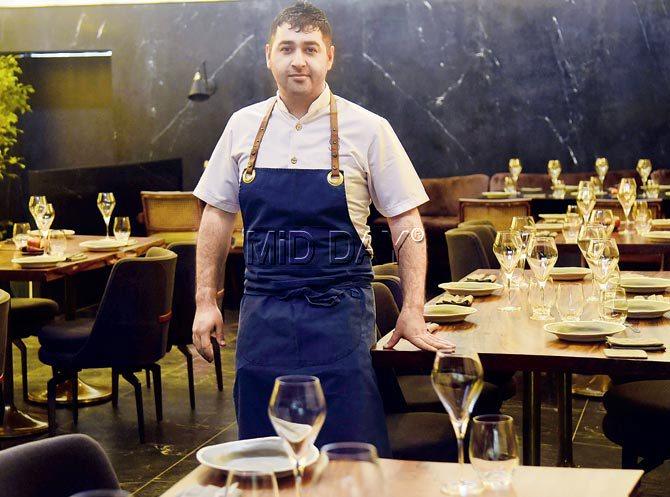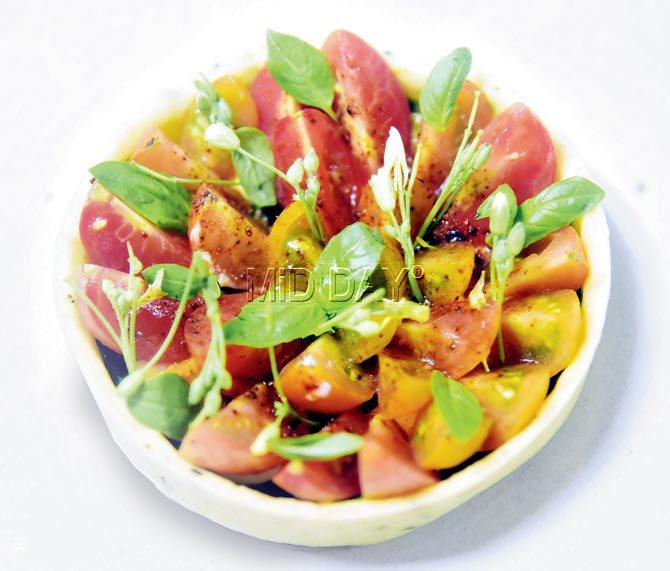Chef Prateek Sadhu is going places. His next stop? The Edinburgh Food Studio to present the taste of New India

Prateek Sadhu has just returned from Moscow, where he helmed a collaborative dinner at Moscow Delhi, a restaurant that uses Russian ingredients served with an Indian twist. “Their kitchen is wood-fired, which made it an even more exciting environment to cook in!” the executive chef of Mahalaxmi restaurant, Masque tells us excitedly. There's more to look forward to for Sadhu, who has been invited to showcase his culinary skills at the Edinburgh Food Studio next month.
ADVERTISEMENT
Edited excerpts from an interview:

Prateek Sadhu
Tell us about the Edinburgh Food Studio.
It is a restaurant and food research hub, and is the brainchild of Ben Reade, former head of research and development at René Redzepi's Nordic Food Lab in Copenhagen, and his partner Sashana Souza Zanella, professor at the University of Gastronomic Sciences in Piedmont, Italy.
Apart from being a restaurant with visiting chefs for three days of the week, the lab hosts events, masterclasses and workshops when the kitchen is not taking orders. Chefs like Ana Ros (the World's Best Female Chef 2017), Redzepi and a team from Stockholm's two Michelin-starred Oaxen have cooked here previously, so it's a tremendous honour [to be invited]. I won't have my team with me, and have to ensure everything is perfect, as per Masque standards.

Heirloom Tomato Tart. Pics/Sameer Markande
What will be on the menu?
The menu is still being finalised, but my aim is to give diners a taste of New India. Think sea buckthorn from Ladakh and wild herbs from Uttarakhand — rhododendron, rowan berries, cactus, fiddle-head ferns, wild apricots and hisalu berries. I'm planning to showcase traditional Indian cooking techniques like smoking, dehydrating and preservation. Ideally, I'd like to cook straight up on a wood fire.
I'm also keen to play around with their ingredients, using our techniques. There will definitely be a lot of Kashmiri and Himalayan influences. The menu will also include a gin turmeric cocktail.
For a chef, how important is it to partake in an international opportunity such as this?
It's crucial. We must use them as a platform to show India's potential, and the work we're doing here, to the world. It gives chefs the chance to showcase the core philosophies of our restaurants and of the food we believe in. It's also obviously superb in terms of exposure to new flavours and techniques.
I find trips like these a great learning experience; it's important to see what's happening around the world. I support using food as a way to shrink borders.
Tell us about your pickling experiments.
Currently, we are pickling the apricots that I brought back from Ladakh. Pickling needs a lot of time and attention. We are experimenting with different solutions. For example, we are testing solutions using apple cider in varying percentages; other times, we lean more towards dry or salted pickling. A lot of R&D goes into how the flavours of a particular ingredient change during the process and to see the effect of different pickling solution on a particular fruit or vegetable.
 Subscribe today by clicking the link and stay updated with the latest news!" Click here!
Subscribe today by clicking the link and stay updated with the latest news!" Click here!






